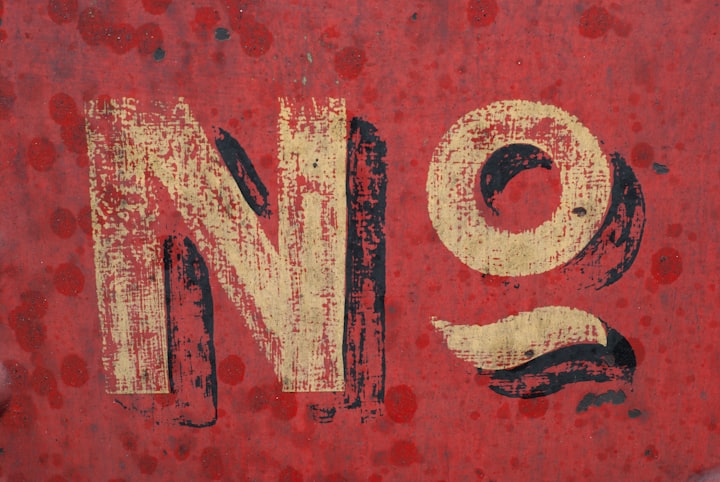10 Ways To Bounce Back From Writer’s Block
Let's get those words flowing again...

Man on floor with notebook on face. Notebook has question mark. Man clearly suffering from writer’s block - Ryan Snaadt
You open up a word document to write and then like a ton of bricks writer’s block hits you. Knocking the words from your mind. They lay scattered on the ground. Surrounded by all these words, but ironically unable to find the right story to tell. So, what exactly is writer’s block and what can you do to get the words and ideas flowing again?
***
What Are The Causes Of Writer’s Block?
“My hand has stopped writing. There is no talk in my mouth.”
― Neal Stephenson, Snow Crash
At some point, every writer will experience writer’s block. Although the causes are varied from internal roadblocks of negative thinking, lack of motivation, procrastination, and perfectionism to external factors like rejections, criticism, time constraints, and even experiences of being trolled online.
Our internal thoughts and external world can impact our creativity. To overcome writer’s block it’s about establishing a solid writing routine and working through the personal psychological barriers that sometimes we build ourselves.
***
How To Bounce Back From Writer’s Block
At some stage, we will all suffer from writer’s block. Here are 10 tried and tested examples of how to bounce back from a blockage.
1. Establishing a regular writing routine
Schedule daily or every other day writing time. Motivation does not last this is why self-discipline is required. So really commit to writing during your planned time even if you don’t feel like doing it. Sundays through to Wednesdays are my current writing days. I like to write in the evening, but this is due to my busy daily schedule. Be flexible and realistic to find a writing routine that suits you.
2. Write from a different location
Currently, my writing space is in a little desk area under the stairs — unfortunately, no owls come to visit me. Now that restrictions are lifted after the pandemic I like to mix things up a little and write in public spaces, such as a coffee shop, local park, or library. People-watching can be a great source of inspiration. So, if you are low on ideas get out and about who knows what you might discover.
3. Use reader responses as a way to generate new writing ideas
I love to read reader responses and see what people are highlighting. This can often inspire ideas of things to write that readers are asking for. once a month I choose one of my most popular articles and write a response article including quotes from feedback and any updates to the original article. Plus a little bit of ‘behind the scenes' information. For example why I wrote the article in the first place.
4. Freestyle writing for up to 15 minutes
If you are struggling to generate ideas set a timer, put pen to paper, and just write or even doodle! After 10–15 minutes look for any common themes. What thoughts were going through your head whilst you were doing this activity? I find that some of my most popular and emotional posts have come from freestyling sessions.
5. Read the work of other writers
I like to read the work and responses of others and sometimes this can spark fresh ideas. I read to learn and grow my mind with the diversity of human experience. I’ve learned so much about different groups and cultures by reading personal experiences and this, in turn, makes me want to share my own unique stories.
6. Plan for writers block in advance - set goals
Set some writing objectives that push you out of your comfort zone 3–5 will do — too many may demotivate you. Try to make them specific and time-limited. Some examples could be:
- I plan to write 20 articles in four weeks.
- I plan to read and respond to 3–5 stories per working week.
- I will spend 30–45 minutes per week on a Friday responding to my readers.
- I plan to write 1000 words daily for the next 7 days.
- I will write 3 stories on productivity over 5 days.
After a set period review your goals and see how you get on. You could track your daily writing in a journal, spreadsheet, or calendar.
7. Use mind-mapping methods
Mind mapping begins with a central idea written in a circle or cloud shape in the centre of the page. Then you can branch out and connect ideas as they come to you. I am rather visual so love to colour code. So after I have completed a mind map I love to go back over it with the highlighters and identify key themes.
8. Partner up with other writers or join a network
When partnering up with others or joining a network you can create external accountability. Sometimes you need someone or even a team of people to bounce ideas off. I belong to some face-to-face and digital writing networks. If you can’t find a local networking group then create your own. Remember to keep it positive and celebrate the successes of others. Writing is always a two-way experience. I feel that sometimes people forget that.
9. Put your wellbeing first
Writer’s block can sometimes be a sign of burnout. It’s important to check in with yourself. Are you sleeping okay or do you need to recharge your body? Food is fuel, what is your diet like? Are you taking regular screen breaks and exercising. Ensure you relax in-between intense writing periods.
10. Address negative thinking habits, fears, and perfectionism
Fear of criticism, or high expectations can hold you back. You might worry that your work is not good enough, or that you are writing about topics that will upset others. Learn to take back control of any negative thinking patterns you may have fallen into. You can do this by first becoming more mindful of what is holding you back and then putting a plan of action in place to tackle them. Check out my post on 10 ways to tackle negative thinking habits when writing and publishing stories.
***
In Summary
As writers, at some point in this journey we will suffer from writer's block. Sometimes this could just be a sign to take a break or slow down or a reflection of your mood or even need to write about a fresh topic. Whatever the course of your writer's block you, know this it's not a permanent state. You can and will bounce back from it. YOU GOT THIS!
About the Creator
Trisha Dunbar
Rambling of written words | Reader of things | Drinker of coffee | Doer of stuff | Welcome to my profile 😊
Reader insights
Nice work
Very well written. Keep up the good work!
Top insight
Eye opening
Niche topic & fresh perspectives







Comments
There are no comments for this story
Be the first to respond and start the conversation.